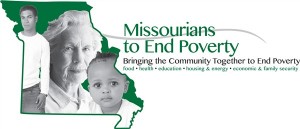
March 26, 2013
Poverty Summit Brings Together Advocates and Experts
The 2013 Poverty Summit, sponsored by Missourians to End Poverty, took place on April 9th in Jefferson City, Missouri. The summit provided an opportunity for organizations and advocates from across the state to network, learn from one another, and develop strategies for addressing poverty in Missouri. This year’s summit featured the notable Peter Edelman, author of So Rich So Poor: Why It’s So Hard to End Poverty in America, who discussed issues related to wealth disparities, unemployment, and the working poor. Other featured speakers included Eileen Wallace and Gene Nichol. More information about the summit can…

Jan. 15, 2013
Center Receives Grant to Expand Work with Food Pantries
The Missouri Foundation for Health recently awarded the Interdisciplinary Center for Food Security (ICFS) a five year, nearly $500,000 grant to expand nutrition related activities with food pantries in Missouri. With this grant, the Center will build upon its current Food Pantry Nutrition Project. “We are very honored to receive this grant and are excited by the opportunity it will provide to take this work to the next level,” said Bill McKelvey, project coordinator. A primary goal of the project is to help food pantries find ways to get healthier food into the hands of…

Dec. 20, 2012
USDA Report: The Concentration of Poverty is a Growing Rural Problem
The December edition of Amber Waves highlights a concerning trend: the growth and concentration of rural poverty. While poverty grew throughout the United States as a result of the 2001 and 2007-2009 economic recessions, it grew faster in rural areas, compared to metropolitan areas. The report notes that “in 2006-10, 26.2 percent of the Nation’s nonmetro [i.e. rural] counties were high poverty, 5.8 percentage points higher than in 2000.” By comparison, 10.3 percent of metropolitan counties were high poverty counties in 2006-10, increasing 3.7 percentage points from 2000. The report also points to the impact of poverty, noting that…
![Belo Horizonte, Brazil - By Benjamin Thompson (Flickr: Belo Horizonte, Brazil) [CC-BY-SA-2.0 (http://creativecommons.org/licenses/by-sa/2.0)], via Wikimedia Commons](https://foodsecurity.missouri.edu/wp-content/uploads/2012/12/Belo_Horizonte_Brazil_builgins-300x199.jpg)
Dec. 13, 2012
The City that Ended Hunger
A Yes magazine article by Frances Moore Lappé tells the story of how Brazil’s fourth largest city, Belo Horizonte, tackled the issue of hunger. Using a combination of policy and market measures, along with citizen engagement, the city reached nearly 40 percent of it’s 2.5 million citizens through various hunger relief and nutrition efforts and reduced infant mortality by half over a 10 year period. In particular, the city worked to link local farmers with consumers through the establishment of farmers’ markets, used pricing schemes to make certain fruits and vegetables more affordable, and established “People’s Restaurants” (Restaurante…
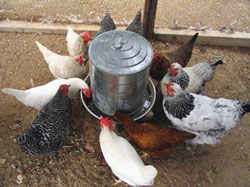
Dec. 5, 2012
Community Food Systems and Food Banks
The Community Food Resource Center, part of the Community Food Bank of Southern Arizona, stands out for their efforts to incorporate programs and projects that link people to community-based food systems. They have active home and community gardening programs, a 2.5 acre urban farm, and farmers’ markets that provide a source of fresh food to the community. The Resource Center also supports a unique Community Food Consignment Program which enables home gardeners and small farmers to consign their produce for sale at local farmers’ markets. Robert Ojeda, vice president of the Community Food Resource Center, was recently…

Nov. 26, 2012
Center Director Featured on Straight from the Heartland
The Director of the Interdisciplinary Center for Food Security, Dr. Sandy Rikoon, was featured on Straight from the Heartland, a radio program of AgWeb, on Thanksgiving day. The report examined hunger in the U.S. and Missouri and gaps in our understanding of the extent of hunger in communities. Rikoon described how research projects of the Center, namely the Missouri Hunger Atlas, provide local officials and agency professionals with county level information about food insecurity and how well private and public hunger relief programs are meeting the need. Roughly 15% of Missourians worry about having enough to eat.

Nov. 15, 2012
Setting the Table for Food Security
The Interdisciplinary Center for Food Security recently hosted a national symposium, Food Insecurity: Assessing Disparities, Consequences, and Policies. Experts from diverse academic disciplines gathered with community activists and practitioners to assess the state of food insecurity and food justice and unpack a simple question with incredibly complex answers: where do we go from here? Mike Burden, Senior Information Specialist with the University of Missouri College of Agriculture, Food, and Natural Resources (CAFNR), covered the event. His story, along with audio clips and images, appeared in CAFNR News. Speakers’ presentations and biographies are also available.
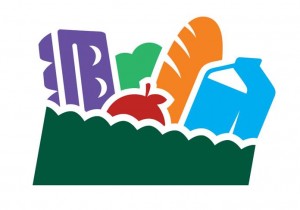
Oct. 31, 2012
Food Stamps and the 2012 Election
A Marketplace Wealth and Poverty series takes a look at the politics of food stamps (i.e. the Supplemental Nutrition Assistance Program or SNAP). The reports highlight perceptions about the program and the way in which some politicians are framing the debate about hunger and poverty in America. The series features two reports on food stamps – Binders, Big Bird — and food stamps? and Food stamps and the politics of poverty, both by Shereen Marisol Meraji.
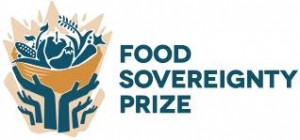
Oct. 26, 2012
Food Sovereignty Prize Awarded
The fourth annual Food Sovereignty Prize, awarded in New York City on October 10 by WhyHunger, honored the work of four grassroots organizations working for a more democratic food system. This year, prizes went to the Korean Women’s Peasant Association, the United Peasant Movement of Aguan Region, National Fisheries Solidarity Movement, and the Coalition of Immokalee Workers. Honorees were recognized for promoting food sovereignty by raising public awareness, organizing communities, implementing programs and policies, building global linkages, demonstrating the importance of collective action, and prioritizing the leadership of women, people of color, indigenous peoples, and migrant workers.
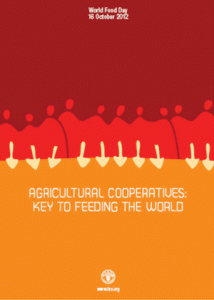
Oct. 16, 2012
World Food Day 2012
October 16 was World Food Day, sponsored by a host of government agencies and non-governmental organizations to raise awareness about hunger and malnutrition around the world. According to a recent report jointly published by the United Nations Food and Agriculture Organization (FAO), the International Fund for Agricultural Development (IFAD), and the World Food Programme (WFP), approximately 870 million people, or one in eight, were suffering from chronic undernourishment in 2010 through 2012. The report notes that while the number of hungry people declined between 1990 and 2007, efforts to reduce hunger have slowed since 2007. The theme…